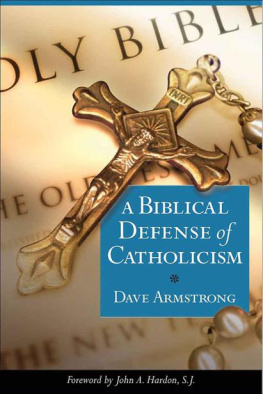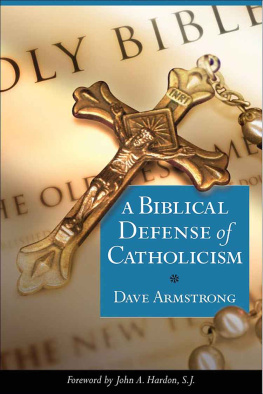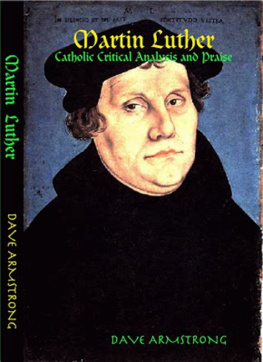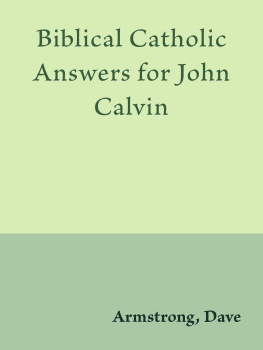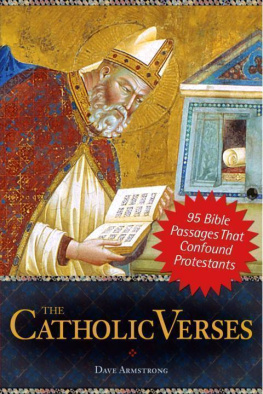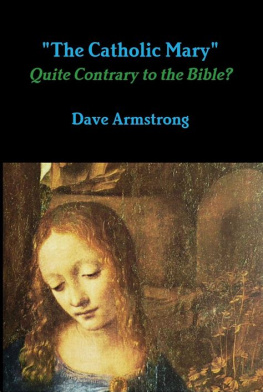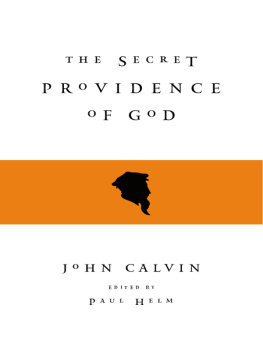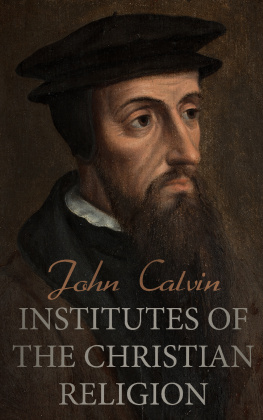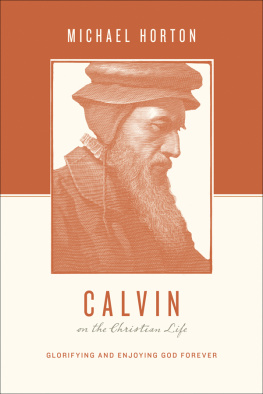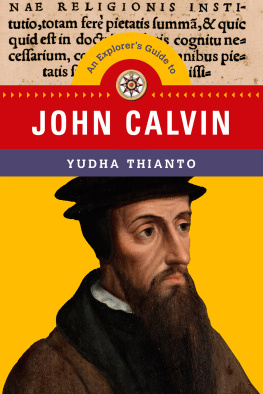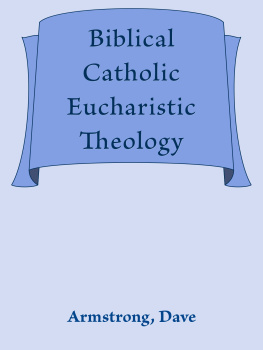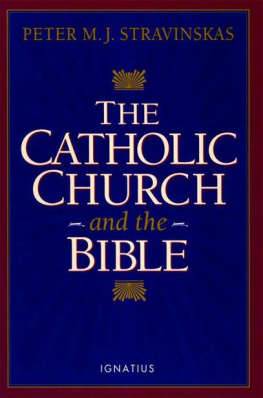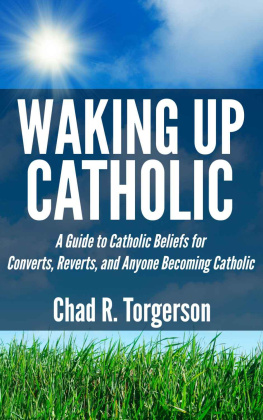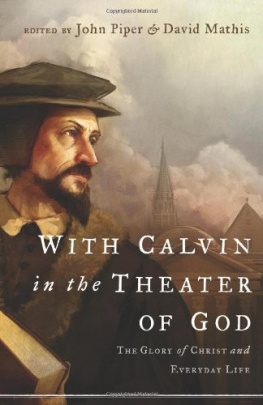A Biblical Critique of C alvin ism : Replies to Exegetic al Arguments in John Calvins Institutes, Books I-III
Copyright 20 by Dave Armstrong
All rights reserved.
Biblical citations (in my portions) are taken from the Revised Standard Version of the Bible ( 1971 by Division of Christian Education of the National Council of the Churches of Christ in the United States of America ); unless otherwise noted.
ISBN 978-1-300-33444-6
Front photograph : Looting of the Churches of Lyon by the Calvinists 1562 , from Histoire Geographie 5ieme Nathan , by Antoine Caron (1521-1599). In the p ublic domain.
DEDICATION
To our Reformed Protestant (Calvinist) brethren in Christ, who love the inspired revelation of Scripture , adore God, and stress and rejoice in His majesty and sovereignty and great love for mankind, as we Catholics also do.
INTRODUCTION
The present volume is a follow-up or Volume II to my previous book, Biblical Catholic Answers for John Calvin (2010). That wor k, for the most part, was devoted to comprehensive (often literally line-by-line) replies to Book IV of Calvins magnum opus, Institutes of the Christian Religion : the portion devoted largely to ecclesiology, or the doctrine of the Church.
A little less ambitious and more specifically focused this time, Ill be replying only to biblical arguments from Calvin in Books I-III, in all instances where he tak es a position that is contrary to Catholic viewpoints (I need not quibble with him when we agree) : a nd Ill be answering primarily from Scripture a lone.
The idea is to figh t fire with fire, so to speak: to challenge Calvin on his own presumed ground and home field of alleged superiority of biblical argument, over against Catholicism, which is supposedly (so Calvin states innumerable times ) unable to sustain an argument for itself based on the data of the revealed theology of Holy Scripture.
Every Protestant worth his salt feels that the Bible is the area where he excels and can overthrow the alleged false doctrines of the Catholic Church. Committed, educated Protestants, to their credit, are , on the whole, very familiar with the Bible, and often put Catholics to shame in this respect. But i ts high time that Catholics begin to vigorously contest these endlessly reiterated stereotypes about Catholicism having no biblical support .
Catholics tire of routinely being regarded as unbiblical or even anti-biblical Christians. Ive always maintained (throughout my 32 books and nearly 2 , 500 Internet posts) the shocking notion that Catholicism is, in fact, far more thoroughly biblical than any particular brand of Protestantism.
I dont expect anyone to simply accept my opinion when I assert this . I aim to demonstrate it in this book, by answering and doing exegesis with John Calvin. I am not expecting it to be easy (Calvin was a very clever debater and dazzling exegete, who failed when he did -- main ly because of the multitude of false premises with which he began). It takes a huge amount of laborious effort to refute C alvin . He is more than equipped to keep any debater who differs with him well-challenged and on their toes.
On the other hand, I have no doubt that the Catholic arguments can and will easily prevail in the head-on confrontation with Calvins Reformed theology and the exegesis he utilizes in order to establish it. I know that because of my experience in writing the previous related book. Calvins exegesis is by no means irrefutable or unvanquishable.
His argumentation brilliant though it often is suffers from a systematic unwillingness to let the entirety of Scripture speak for itself. I know ( from firsthand experience with Book IV) that he quite often picks and chooses what he wants from Scripture, for his polemical purposes, while ignoring other equally relevant portions.
Unfortunately, this has been a strong tendency in Protestant exegesis and systematic theology (and especially apologetics aimed to counter Catholicism) ever since -- though everyone , including Catholics, is prone to this sort of bias .
Taking on John Calvins exegetical arguments in this fashion will, it is hoped, demonstrate the persistent fallacies and falsehoods (from the Catholic perspective) that are frequently found in hi s writing, and illustrate at least some ways to refute and overcome them.
Catholics regard Calvinists and other Protestants as brethren in Christ, and rejoice over the many important belief s that we hold in common. At the same time, the Catholic apologists task is to answer objections to Catholicism that arise in these quarters, and to present what we feel are superior alternative opinions.
Nowhere is this battle more lively and crucial than regarding Holy Scripture: Gods inspired, infallible revelation: held in the highest esteem by both parties. However much we disagree, well always agree that theological positions must be in harmony with the Bible. If not, they must be rejected.
I'll be using , once again, the (public domain) translation of Institutes of the Christian Religion by Henry Beveridge , produced for the Calvin Translation Society in 1845, from the 1559 edition in Latin; reprinted by William B. Eerdmans Publishing Company (Grand Rapids, Michigan), 1995, and available online .
I will generally follow the structural format of the previous book on Calvin, including an Appendix of Areas of Calvinist-Catholic Agreement. W he n I am vigorously contesting another theological viewpoint, I nevertheless want to also maintain an ecumenical spirit and note significant areas where Calvinists and Catholics agree, or largely agree (as I did in Biblical Catholic Answers for John Calvin and my volume about Martin Luther , as well ).
Oftentimes, these facts are poorly known or understood by many of those in both parties. With a lmost equal frequen cy , Calvinists mistakenly think that Catholics disagree with them on various points, when in fact, we agree . It works both ways: Catholics often inadvertently mischaracterize various Calvinist or other Protestant beliefs as contradictory to the Catholic faith, when they are not so. We have more in common than many (probably most) of those on either side realize.
Thus, it is necessary (for the sake of total honesty and factuality not to mention charity ) to make note of agreement, even in the midst of an effort mostly devoted to critiques of another viewpoint , and defense of our own.
Lastly, I should note that in my 2010 book, Biblical Catholic Salvation , I devoted about a hundred pages to a biblical refutation of the five points of the classic Calvinist soteriological TULIP (total depravity, unconditional election, limited atonement, irresistible grace, and perseverance of the saints; along with related issues of free will, double predestination, and personal assurance of salvation).
For the most part, I wont revisit those counter-arguments here ( neither in all the particulars, nor in their overall scope) , since I dont like to repeat material that is already present in other books of mine. Ill be engag ing in much more specific counter-exegesis of Bible passages ; rather than focus ing on grand themes (i.e., more so biblical than systematic theology).
My overall critique of Calvinism (notwithstanding the title of this volume) must be viewed as presented in its totality in the trilogy of books including this one, Biblical Catholic Answers for John Calvin , and Biblical Catholic Salvation . Each stands on its own, as far as it goes, but my complete Catholic counter-argument (biblical or otherwise) to Calvinism and John Calvin is found only in all three, viewed as a set or trilogy.
Perhaps in the future, there will be further related titles, but for now, these three make up my collective case against Calvinism in particular (from among the various strains of Protestant theology) .


